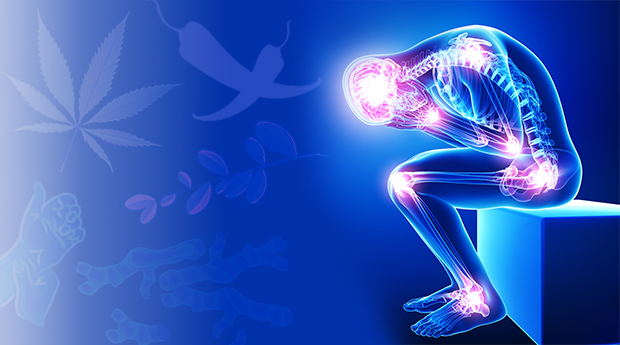
The holiday season can be a challenging time for pain management. For many, the transition to colder and more blustery weather means extra aches and pains. Beyond just the winter weather, the holidays can also be a time of added stress, excessive travel, poor eating (and drinking) habits, and too little sleep. All of this can lead to inopportune pain flare-ups that put a big “bah humbug” into your season’s festivities.
Here are some easy strategies to help you get through the holidays with less pain and more joy:
1. Have A Communication Strategy
Holiday get-togethers with friends and family, or even meeting new people at parties, can sometimes lead to stressful social interactions. Whether it is awkward conversations about your health or heated arguments about politics, holiday chatter has the potential to escalate your anxiety and anger and tense up those already sore body parts. When you hear somebody start to press your buttons, try not to fire back; instead, take some slow deep breaths and transition the conversation topic or smile and move on to a different group. If you know you are going into a stressful situation, have a partner with you, where the two of you agree ahead of time to work together to unwind from toxic conversations. Keep in mind that you can’t control what others say or do, but you can control how you react to it!
2. Eat Plants First
It’s no secret that many Americans put on a few pounds around the holidays. All of the yummy baked goods, along with social gatherings that involve eating, can take its toll. First, foods with added sugar or a lot of carbohydrates (cookies, cakes, etc.) create blood glucose spikes, which promotes inflammation at a cellular level. Processed foods are likely high in salt and artificial ingredients, which further increases swelling and bloating. And gaining just a few extra pounds can put added stress on painful joints and spines. To avoid missing out on all of the goodies, start off by eating the healthy choices first, including vegetables, fruits, nuts, whole grains, and lean protein. Then when you move on to more decadent choices, you will be less likely to over-indulge.
3. Pace Yourself
Try not to schedule too many activities in one day and avoid putting yourself in situations that are too physically taxing. Set aside some-time in your day to relax, meditate, exercise, or just go for a nice walk to avoid burnout. If you are traveling, check your bags at the curb and avoid the stress of lugging them on the plane or train and hoisting them into the overhead bin. Make a point to avoid prolonged sitting or driving if that bothers your back, and set a timer to take breaks when doing physical tasks like shoveling snow or hanging lights.
4. Watch Your Mood
Consider doing some preventive work to avoid excessive mood swings. Spend a few minutes each day engaging in activities that calm your nervous system. That could mean pulling out an adult coloring book, listening to relaxing music, or trying some therapeutic breathing exercises. Avoid the winter blues by making a point of getting outdoors in the middle of the day, or try some phototherapy with a light box for 20 minutes. Be sure to unplug from your smartphone and social media, and try boosting your mood with 30 minutes of an activity you enjoy. Don’t hesitate to seek help from a counselor or trusted resource as opposed to fighting it alone.
5. Stay On Top Of Your Sleep
Poor sleep directly correlates with more pain, so burning the candle at both ends won’t do you any favors. Engage in healthy sleep hygiene habits during the holidays as much as possible and try to stick to your normal sleep cycle whenever possible. So, avoid shopping online at all hours of the night and don’t be the last one to leave a party. Alcohol consumption can interfere with high-quality REM sleep, so look for healthy alternatives like sparkling water. Poor sleep or too much alcohol can also set you up for a bad headache the next day.
To arrange an appointment with our Pain Management Specialist, Dr. Jeffrey Chacko, please contact our office at (516) 419-4480 or (718) 215-1888.













